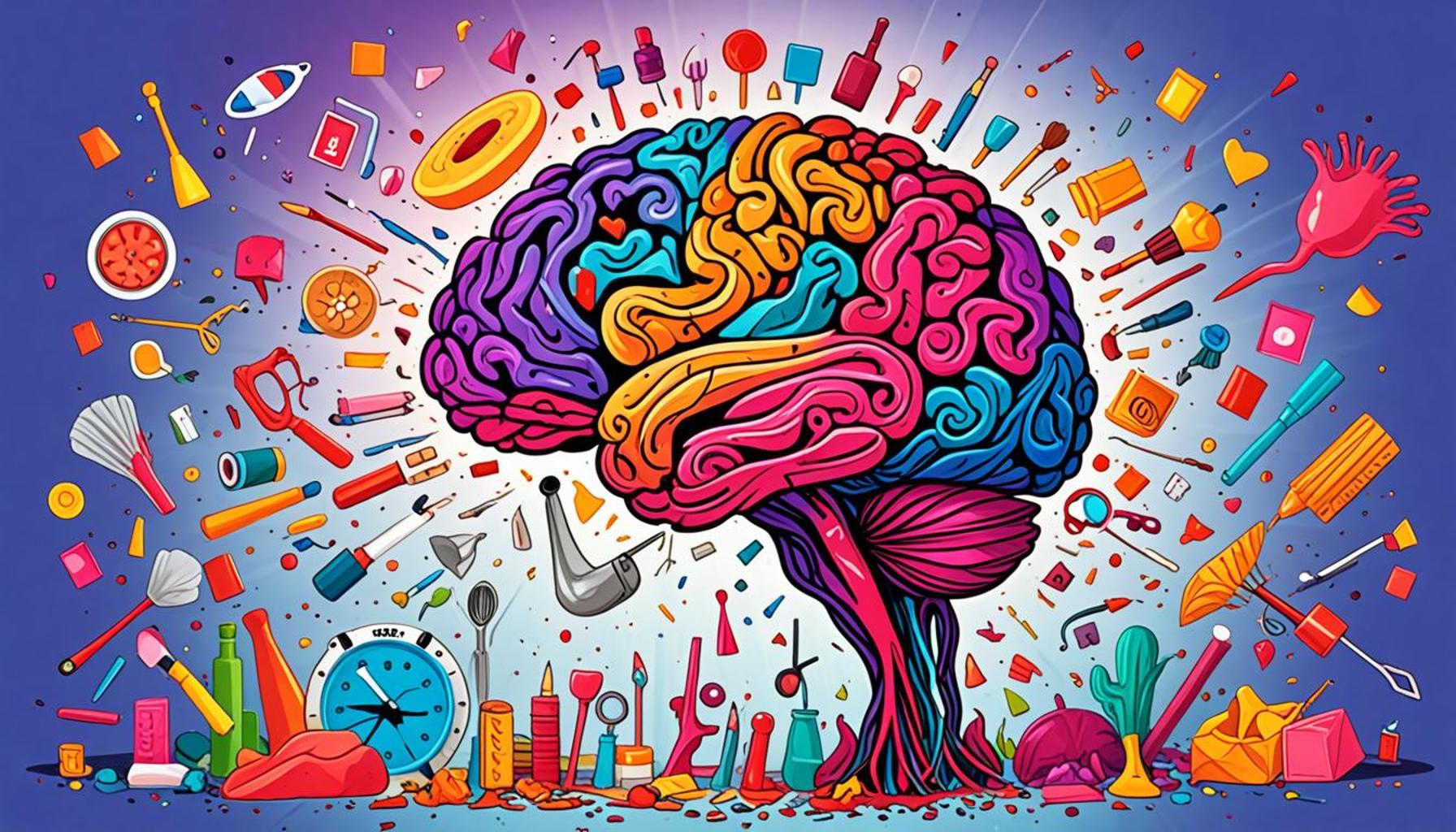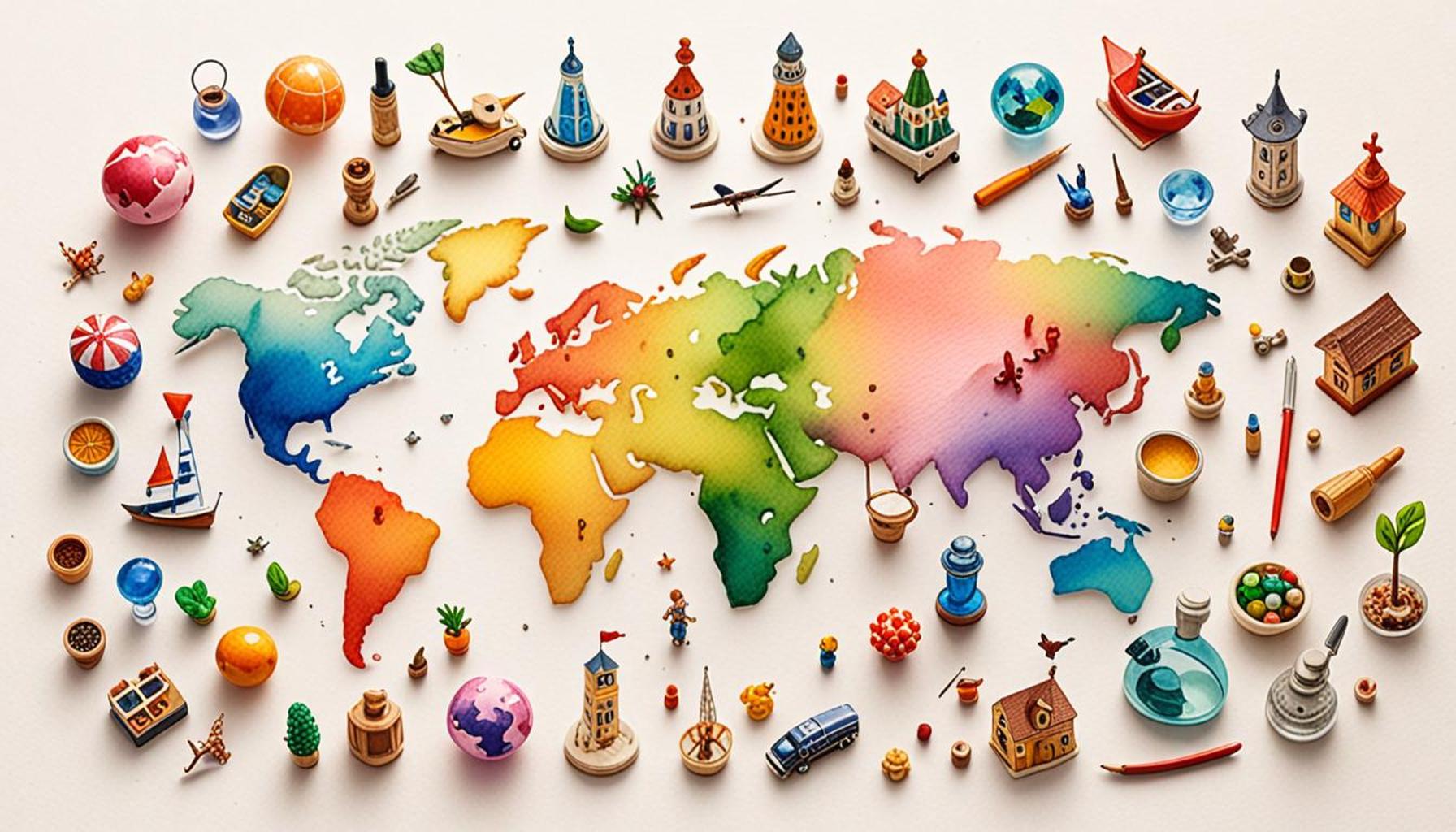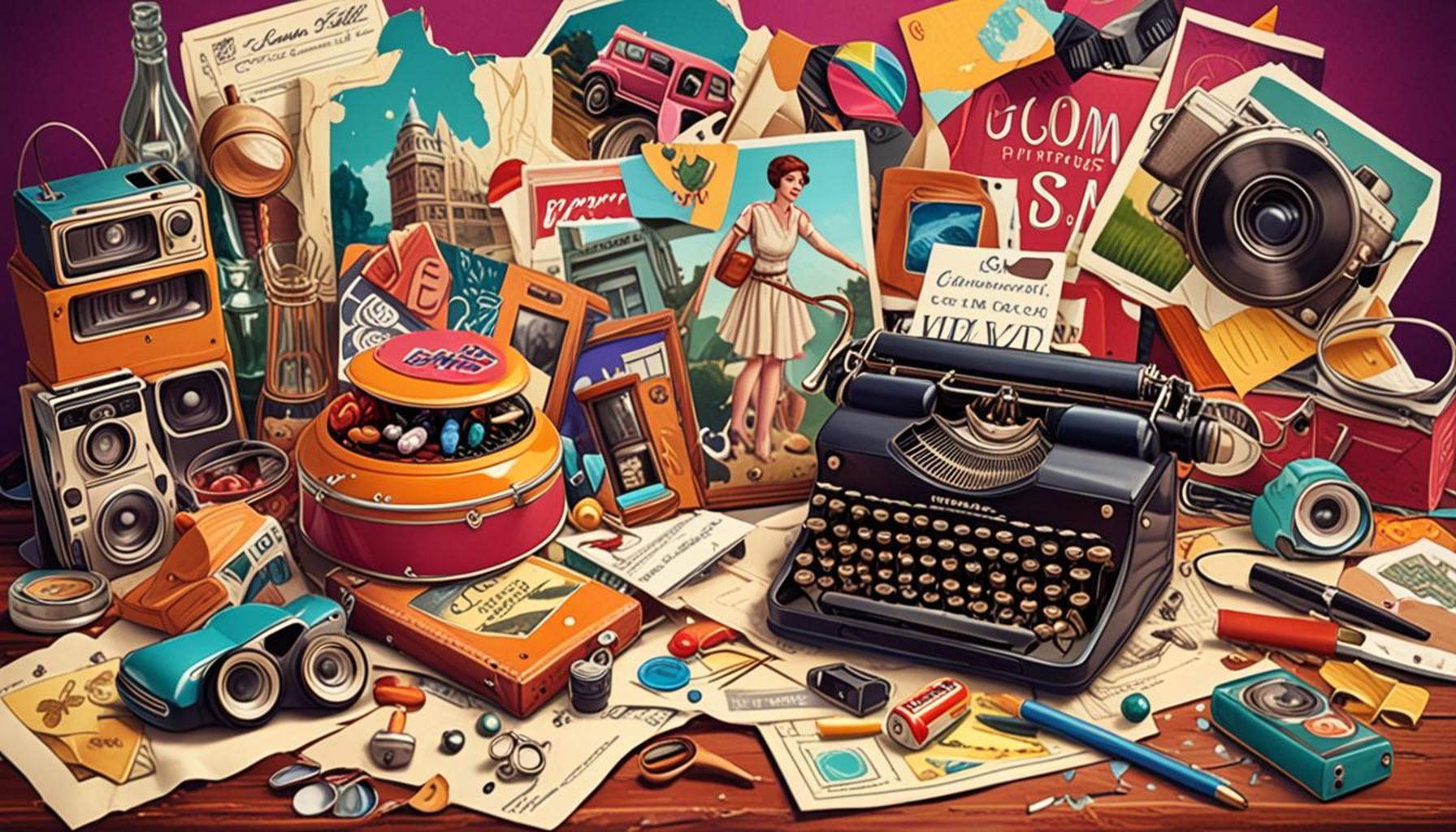The Psychology of Collecting: Understanding What Drives Our Passion for Accumulating Items

The Psychology of Collecting
Why do we collect? For many, it’s more than just a hobby; it’s a deep-seated passion driven by psychological impulses. Understanding the psychology behind collecting can shed light on why individuals are drawn to accumulate a diverse range of items, from vintage action figures to rare vinyl records.
Several factors contribute to our urge to collect, and each one unveils a different aspect of human behavior:
- Emotional connections: The items we choose to collect often evoke cherished memories or feelings. For instance, a collection of baseball cards may remind someone of bonding moments with a parent or grandparent during childhood. Such emotional ties offer nostalgia and comfort, making even the simplest object hold extraordinary significance.
- Identity and belonging: Collecting can help reinforce our sense of self and connect us with communities of like-minded individuals. People who collect comic books may find solace in conventions where they can meet others sharing the same passion, exchanging stories and building friendships that enhance their social circles. These communities often provide a sense of belonging that offers both support and validation.
- Status and achievement: Rare or valuable collections frequently represent accomplishment and exclusivity. For example, owning a first edition of a famous novel or an original piece of art can elevate one’s status among peers. Such collections often serve as symbols of success, epitomizing the knowledge and effort that goes into acquiring them.
These motivations often intertwine, revealing layers of significance behind our collections. For instance, a passionate collector of vintage toys may be driven not only by nostalgia but also by a desire to connect with a community and gain recognition for their expertise. From vintage toys to art masterpieces, collectibles serve as tangible expressions of personal interests and values.
In the United States, the passion for collecting is particularly vibrant, transcending various demographics and interests. Enthusiasts range from those meticulously assembling sports memorabilia, including jerseys and autographed baseballs, to individuals who treasure quirky and unique records or coins. The sheer diversity in collections showcases the myriad ways people find joy in acquiring items that resonate with them.
The widespread phenomenon of collecting invites us to delve deeper into the underlying psychological drivers. For example, collectors often find that not only does their collection provide personal satisfaction, but it can also become a topic of conversation or a legacy to be passed down through generations.
This article explores these motivations further, highlighting how they impact our choices and behaviors. By examining our passions and the psychology of collecting, we uncover not just what we gather, but why we feel compelled to do so. Each collected item tells a story that connects to our identity, emotions, and social interactions, enriching our lives in more ways than one.
DIVE DEEPER: Click here to discover more
Unpacking the Motivations Behind Collecting
As we delve into the psychology of collecting, it’s essential to explore the intricate motivations that drive individuals to accumulate items. These motivations transcend mere possession; they delve into our psychology, identity, and social dynamics. When examining the underlying reasons, several themes emerge, each elucidating a different angle of the collecting phenomenon.
1. The Quest for Knowledge: A significant aspect of collecting is the pursuit of knowledge that often accompanies it. Collectors often research their items, learning about their history, value, and rarity. This process can be satisfying and intellectually stimulating, offering collectors a sense of achievement as they expand their understanding of the objects they pursue. Whether it’s vintage watches or classic comic books, the depth of knowledge that collectors develop can be profound, enhancing their enjoyment and appreciation.
2. The Thrill of the Hunt: For many collectors, the excitement lies not just in the accumulation of items but in the search itself. This phenomenon, often referred to as ‘the thrill of the hunt,’ can be adrenaline-inducing. The quest for a hard-to-find item brings about a rush comparable to a competitive sport. The numerous stops at thrift stores, garage sales, or online auctions can lead to unexpected treasures, fueling a collector’s passion and persistence.
3. A Sense of Control: In a world that can often feel chaotic, collecting offers individuals a sense of control and order. As they arrange and categorize their collections, they create a personalized universe. This organization can provide comfort and stability in their lives, especially when external circumstances are unpredictable. For example, a collector of rare stamps may find solace in meticulously displaying them in an album, turning an ordinary activity into a meditative ritual.
4. Psychological Benefits: Numerous studies have indicated that engaging in hobbies like collecting can have positive psychological outcomes. Collectors often report heightened feelings of joy, satisfaction, and purpose associated with their collections. Items become more than just possessions; they act as vehicles of joy, evoking positive emotions that contribute to overall well-being. The act of collecting also provides a tangible connection to something greater than oneself, nurturing a fulfilling engagement with personal interests.
These emotional and intellectual motivations intertwine, creating a rich tapestry of experiences for the collector. Whether through education, competition, or emotional solace, the act of collecting offers pathways for personal growth and connection. It invites members of various communities to bond over shared experiences, fostering relationships that flourish through shared interests.
The diversity of collections across the United States further demonstrates how these motivations manifest in unique ways. From those who curate rare baseball cards to collectors of unique art pieces, the drive to accumulate items reflects a broader spectrum of human experience, engaging us on multiple levels. By exploring these motivations further, we can begin to understand the profound impacts that collecting has on our lives.
| Factors Influencing Collecting | Emotional and Social Benefits |
|---|---|
| Nostalgia and Memory | Collecting often serves as a reminder of pivotal moments in one’s life, offering a strong sense of identity and belonging. |
| Community and Connection | Engaging with fellow collectors creates a supportive network, fostering friendships through shared interests. |
| Therapeutic Effects | The act of collecting can provide therapeutic value, offering stress relief and a productive distraction from daily life. |
The factors that influence the psychology of collecting are deeply rooted in our emotional and social contexts. Nostalgia plays a critical role, often-triggering intrinsic motivations to acquire items that remind collectors of their past. The emotional attachment created through these memories shapes their identities and reinforces a sense of belonging within specific communities.Moreover, the connection formed through collecting cannot be understated. Community among collectors nurtures relationships that deepen as members share their experiences and passions, helping each other navigate the intricate world of collectibles. This camaraderie highlights how collecting transcends mere accumulation—it becomes a platform for shared joy and mutual understanding.Additionally, the therapeutic aspects of collecting are worth noting. Engaging in this hobby can significantly impact mental health. Many individuals find solace and stress relief in their collections, providing a constructive outlet that distracts from the complexities of their daily lives. Collecting not only serves personal fulfillment but also enriches social interactions, making it a multifaceted pursuit worthy of exploration.
DIVE DEEPER: Click here to discover more
The Social Dimensions of Collecting
While personal motivations lay the groundwork for our passion for accumulating items, the social dimensions of collecting deepen our engagement and enhance our experience. Collecting transcends solitary pursuits, often leading individuals into vibrant communities where shared interests create lasting connections.
1. Building Community: Collectors frequently find camaraderie among fellow enthusiasts. Whether through online forums, local clubs, or social media groups, collectors can swap stories, share tips, and celebrate their triumphs together. This sense of community is a powerful motivator, providing support and validation for one’s interests. For instance, conventions like Comic-Con allow comic book and pop culture enthusiasts to gather, fostering friendships through shared passions and creating a dynamic social environment.
2. Identity Formation: Our collections can serve as extensions of our identities, allowing us to express who we are and what we value. Collectors may gravitate toward specific themes or genres that reflect their personal beliefs, experiences, or aspirations. A vintage vinyl record collector might do so not just for the music but as a form of self-expression rooted in nostalgia and a yearning for authenticity. Such collections become symbols of identity, intertwined with personal narratives that collectors are eager to share with others.
3. Status and Prestige: The nature of collecting often aligns with the concepts of status and prestige. Rare and valuable items—not just in monetary terms but also in cultural significance—can confer social status upon their owners. This is particularly evident in fields such as fine art or classic cars, where collecting can become a display of wealth and sophistication. The thrill of acquiring coveted pieces fosters a unique brand of rivalry among collectors, as they showcase their prized possessions in competitive exhibitions and auctions.
4. Psychological Resilience: Engaging in a collecting hobby can also bolster psychological resilience. In tough times, a devoted collector might find solace and distraction through the items they acquire. This is especially pertinent for individuals coping with loss or trauma; collecting can emerge as a therapeutic practice, channeling emotional energy into the inventory of personal passions rather than bearing the weight of suppression. Studies indicate that participating in fulfilling activities such as collecting can lead to improved mental health outcomes, promoting a sense of purpose and belonging.
5. The Generational Legacy: Many collectors focus on the preservation and sharing of their collections with future generations. Items can become heirlooms, imbued with family history and heritage. For instance, a collection of vintage toys may not only entertain the current owner but also become a cherished aspect of childhood for their children or grandchildren. The act of collecting thus evolves into a narrative thread that connects past, present, and future, contributing to a legacy that transcends individual experience.
These social aspects add complexity to the psychology of collecting, revealing not just what we collect, but also why we engage with others in the pursuit of our passions. The intertwining of personal and societal influences shapes not only individual experiences but also the broader cultural perceptions surrounding collecting, emphasizing its role as a meaningful human endeavor.
DISCOVER MORE: Click here to dive into outdoor adventures
Conclusion: Unraveling the Tapestry of Collecting
The psychology of collecting is a rich and intricate tapestry, woven from personal motivations and social dynamics that deepen our passion for accumulating items. As we explored, the act of collecting is not merely a pursuit of tangible objects but an expression of our identities, values, and social connections. Individuals engage in collecting for a variety of reasons, ranging from the therapeutic benefits it provides in times of hardship to the profound sense of community it cultivates among enthusiasts. These shared experiences and narratives transform collections into living legacies that connect generations.
This phenomenon also highlights how collecting can serve as a mirror reflecting broader societal values—whether it be the status conferred by rare items or the personal fulfillment derived from creative expression. The interplay of personal narratives and cultural significance reinforces that collecting is more than a hobby; it is a testament to our search for meaning and connection in a complex world.
As we continue to uncover the layers of the collecting psyche, it becomes clear that our passion for accumulating items is deeply rooted in the desire for identity, community, and preservation of history. For those intrigued by the multifaceted motivations behind collecting, further exploration awaits—from engaging with local collecting communities to attending exhibitions that celebrate this unique endeavor. Understanding what drives our passion for collecting not only enriches our appreciation of our treasured items but also sheds light on the shared human experience at its core.


